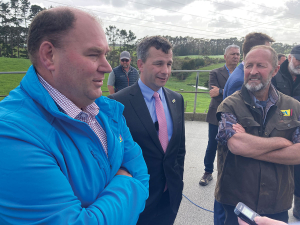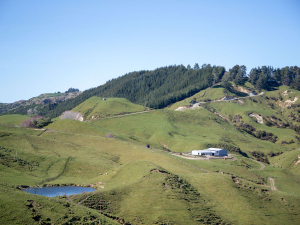Attention has focussed on the Overseas Investment Act, and whether organisations such as Pengxin should be allowed to buy farms here. It's been suggested by some that those complaining now are only doing so because Pengxin is Chinese, and that's probably true in a few cases, but there have long been rumblings about the steady leaching of land into foreign hands, be they Asian, American, African or European. The scale of the Crafar estate, 16 dairy farms totalling 8000ha, is another factor. Combined with the nationality issue, it's proved a lightning rod for a storm that's been brewing for some time.
With the storm at its height this is not the time to debate reform of the Overseas Investment Act. However, it is a debate New Zealand should have. Our politicians, particularly those in power, will be reluctant to tackle such a hot potato, but they must. Food security is a critical issue and there's a land grab going on globally. Africa is the main victim, because many of its nations have neither the wealth nor the political fortitude to prevent it; but New Zealand needs to make sure it's not subject to the same corporate colonialism.
Yes, overseas investors can be very beneficial, bringing capital that local economies cannot match. But when push comes to shove, as it will in the not-too-distant future over food, farms owned by overseas corporates (their key stakeholders being customers, shareholders and in some cases governments) will supply their own needs first, and the nations where those farms are situated will have to pay a premium to buy the produce back – if they can afford it.
Such farms are a different proposition from those bought by rich foreigners who want to live here for six months of the year and maybe the Bahamas or Monte Carlo for the rest of the time, just as they are from those bought by immigrants coming here to farm themselves. There's a spectrum of overseas investment, and the question is, how and where do we draw the lines and implement the controls, if at all? For a nation that's nailed its colours so firmly to the free-trade mast it's a curly question.
Overseas investment aside, there's another angle to this Crafar saga which has largely been overlooked: the lending which led to the receivership, and such a massive mortgagee sale. Just what sort of checks did the three main creditors – Westpac, Rabobank and PGG Wrightson – do before dishing out the dosh? Those seeking to apportion blame for such a large chunk of land ending up in Chinese hands would do better to focus here, than on the receiver, OIO, or Ministers Williamson and Coleman.
















